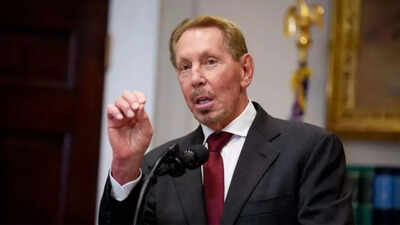ARTICLE AD BOX

Oracle founder
Larry Ellison
has surpassed Amazon’s Jeff Bezos to claim the No. 2 spot on the world’s richest list, according to the
Bloomberg Billionaires Index
. Bezos had held the position for nearly eight years, with Meta’s Mark Zuckerberg briefly occupying it at times. Bloomberg notes that Ellison’s wealth surged by over $20 billion this week, fueled by a record-high Oracle Corp. stock price.Oracle’s shares jumped 13% to $199.85 at Thursday’s close in New York, marking the largest single-day gain in a year, after the company forecasted a 70% increase in cloud infrastructure sales for the fiscal year, Bloomberg reports. The software giant, traditionally known for its database products, is gaining ground in cloud computing, particularly for AI-focused clients. Oracle recently launched a joint venture called Stargate to supply OpenAI with significant computing power.“Oracle is on its way to becoming one of the world’s largest cloud infrastructure companies,” Chief Executive Officer Safra Catz said in a statement Wednesday, as quoted by Bloomberg. She added that fiscal year 2026 revenue growth rates are expected to be “dramatically higher.”Bloomberg highlights Oracle’s $138 billion in remaining performance obligations, a key indicator of bookings, up from $130 billion the prior quarter. On an analyst call, Ellison described an unprecedented order: “We recently got an order that said we’ll take all the capacity you have, wherever it is… we never got an order like that before.”
The AI boom has driven demand for data center capacity, with Oracle carving out a niche in AI-focused computing power, serving clients like Elon Musk’s xAI and Meta, Bloomberg reports. Analyst Brent Thill told Bloomberg TV that Catz’s long-term outlook, hinting at revenue acceleration, was the “exceptional” part of Oracle’s report, potentially driven by Stargate and OpenAI collaborations.To meet demand, Oracle’s capital expenditures tripled to $21.2 billion for the year ended May 31, with plans to rise to $25 billion this year, Bloomberg notes. Ellison explained, “The reason demand continues to outstrip supply is we can only build these data centers, build these computers, so fast.”



.png)
.png)
.png)
















 11 hours ago
3
11 hours ago
3









 English (US) ·
English (US) ·